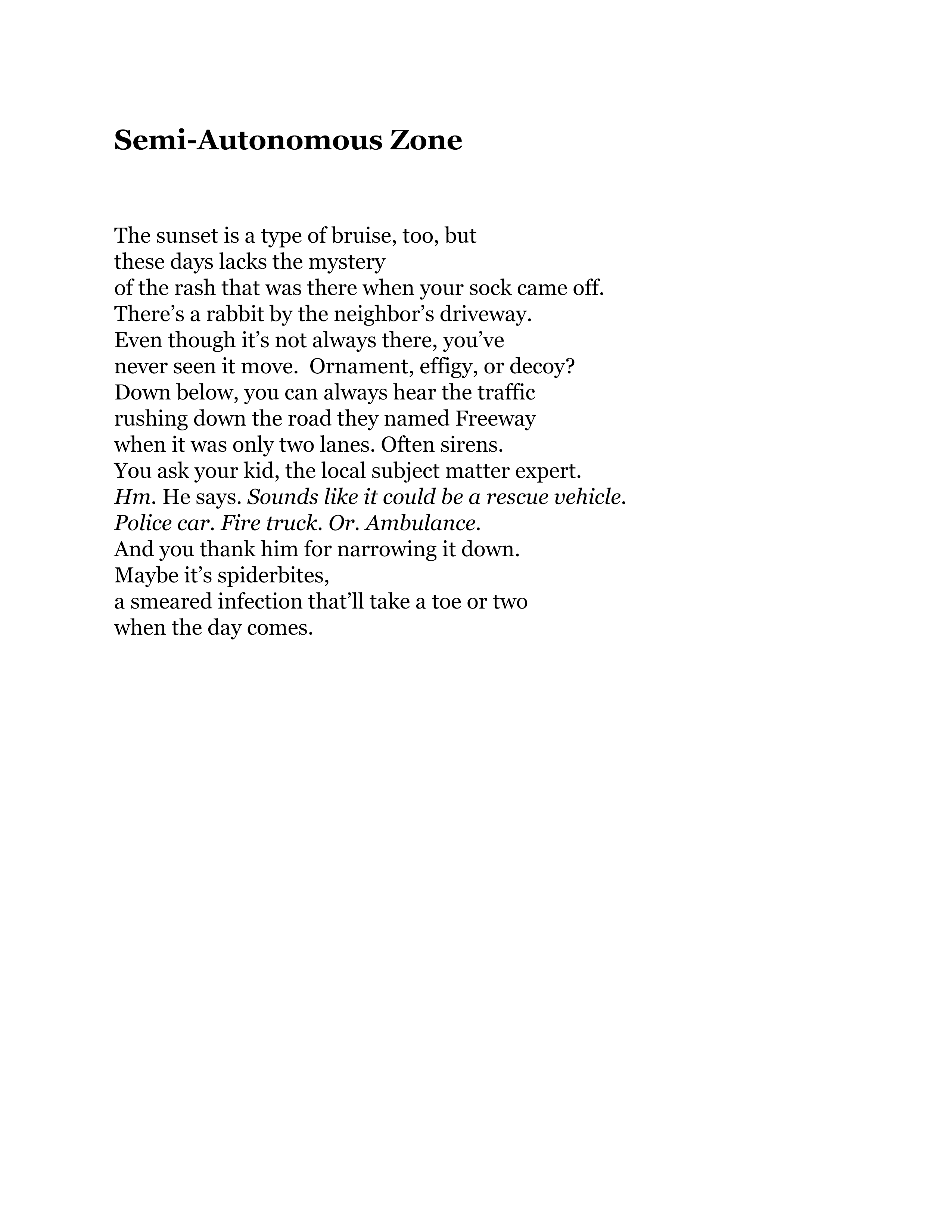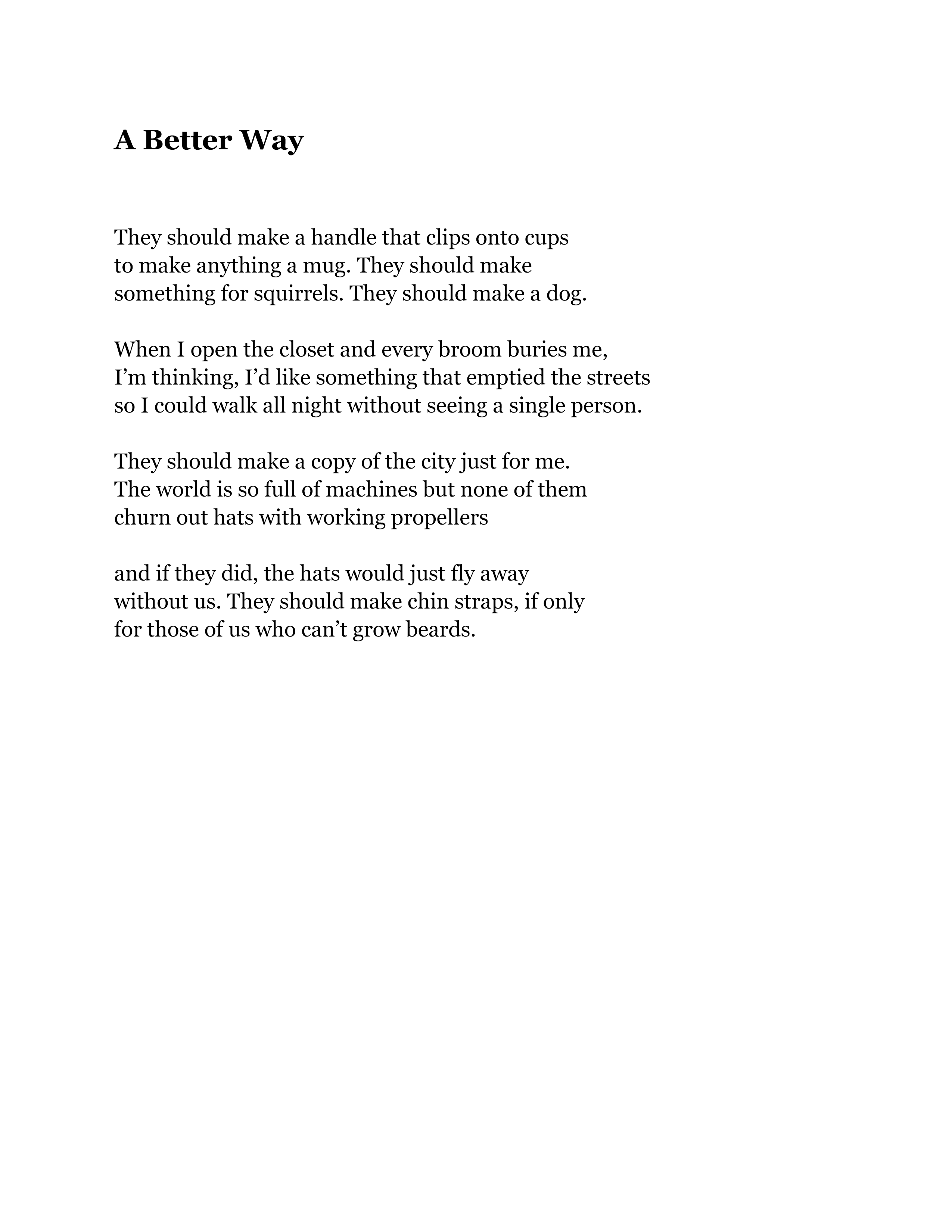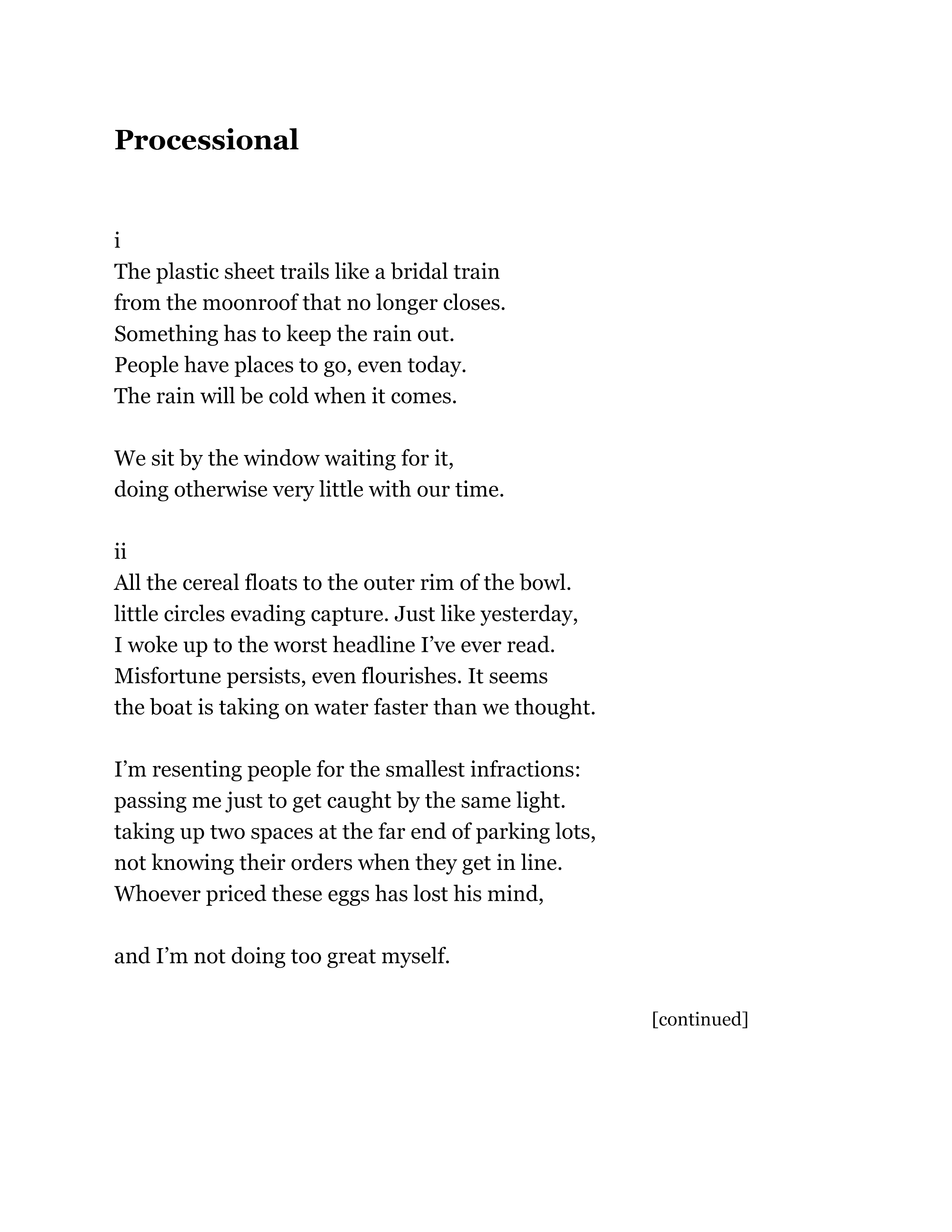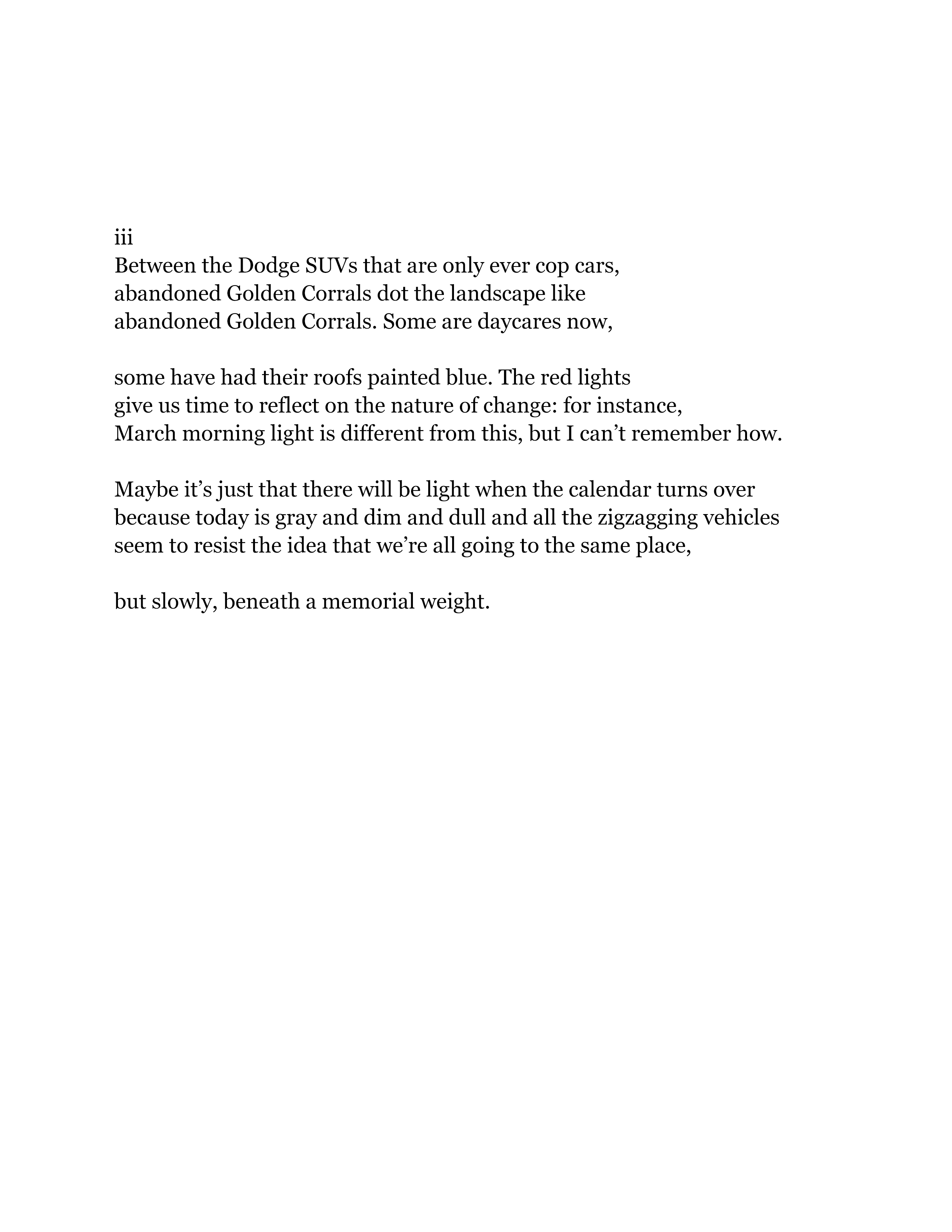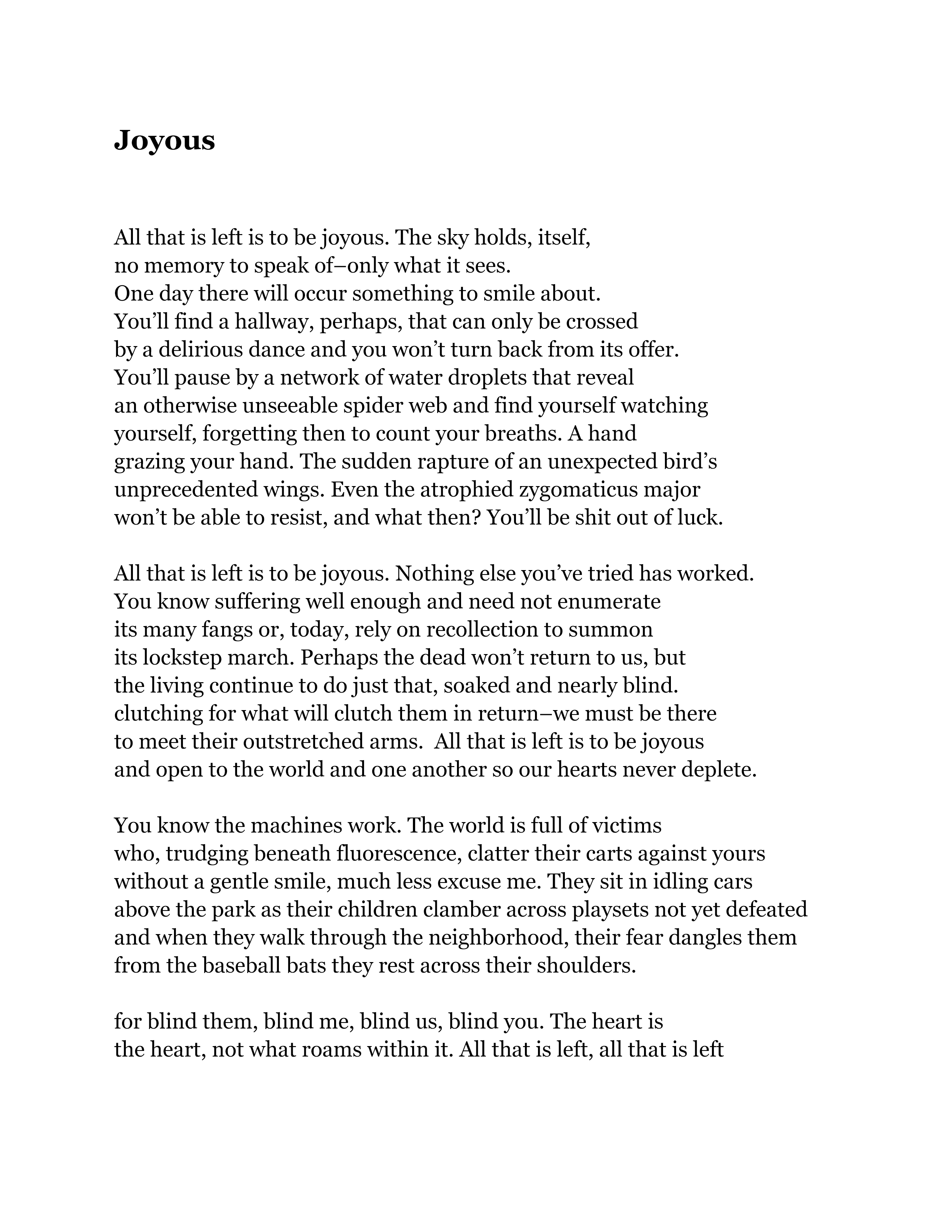4 poems by Jayce Russell
1 essay by Jeff Kass, on the poems of Jayce Russell
There’s a kind of poem that knocks my socks off.
Usually it starts with lines like The sunset is a type of bruise, too, but/ these days lacks the mystery/ of the rash that was there when your sock came off.
You see what I mean? Socks effectively knocked off, and not just because the image contains an actual sock coming off. It’s the comparison: the bruise-looking sunset vs. the uncovered rash, and the sunset containing lesser mystery. Immediately, I am struck by how the poet sees the world through their own unique, quirky lens, which, essentially, is why I like to read poems – to experience how an imaginative mind different from my own messy brain attempts to understand how we live, why we live, what’s happening on this planet which we collectively inhabit. Throughout these four poems, that initial impulse, sparked by those first three lines, was never disappointed.
There’s a sense of hopeful hopelessness here, if that makes any sense, a notion that even when almost all is lost, all is, in fact, not lost. Think of abandoned Golden Corrals that dot the landscape, as piquant an image suggesting twenty-first century American despair as one can find. A once – if not proud – at least financially viable restaurant franchise that served Middle American families with moderately priced, some might say, mediocre, comfort food. Now forsaken. The name of the franchise itself hearkening back to days of the gold rush (another stream of financial success ultimately deserted), and/or the mistaken, mythological notion that America, land of opportunity, is where the streets (not just the President’s bathroom fixtures) are paved with gold. And yet. And yet. Some of the abandoned restaurants grow blue roofs and become daycare centers, an unintended consequence that hints whatever gold there once was, was only ever in our imagination, only ever in what we can conjure, only in how we can evolve.
Here is not a writer who dodges the ugly. Here is a writer who claims Misfortune persists, even flourishes. It seems/ the boat is taking on water faster than we thought. A writer who gets caught in their own net of resenting people for the smallest infractions:/ passing me just to get caught by the same light/ taking up two spaces at the far end of parking lots/ not knowing their orders when they get in line. Who among us has not been pummeled by the same or similar irritations? I know I have felt myself shimmering with hatred in the car, at the checkout line, waiting behind a driver who appears to be reviewing the financial history of an entire civilization at the ATM. I have then had to urge myself to slow my heart rate, dial back my impatience, defrock myself from the seduction of my judgmental robes. Let’s be honest, aside from the staking of a claim to multiple spaces in a parking lot, I’ve probably, at one point or another, committed most of these sins myself.
And yet. And yet. What is left for this poet amidst both our petty and substantial divisions? Joy. Only joy. Only finding a hallway that can only be crossed/ by a delirious dance and you won’t turn back from its offer. For this poet, it is clear we know suffering enough and need not, always, enumerate its many fangs. When the sounds of the world, even in the ears of a child, narrow down to rescue vehicle./ Police car. Fire truck. Or. Ambulance, there is still the beauty of a network of water droplets that reveal/ an otherwise unseeable spider web; there is still the delightful feather of a hand grazing your hand; there is still The sudden rapture of an unexpected bird’s/ unexpected wings. This writer presents a choice, join the zeitgeist’s many victims and sit in idling cars above the park or open to the world and one another so our hearts never deplete.
It’s not always easy, but I, for one, am determined to choose the latter.

